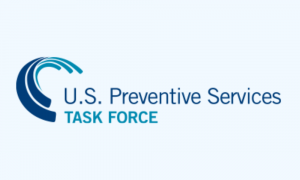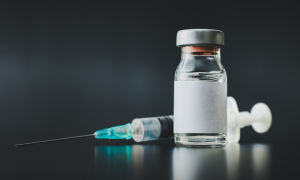
Fast facts about Herpes (Herpes Simplex Virus)
Herpes is a very common viral infection caused by herpes simplex virus (HSV). I can cause sores on the mouth or face or in the genital area. Herpes cannot be cured, but it can be treated.

Over the years, we’ve talked to thousands of people about herpes, both through our former hotlines and email service and now through our Ask the Experts program. We probably answer more questions and address more concerns about herpes than any other STI.
Why the outsized interest? For one, while herpes can be treated, it can’t be cured, so people naturally have questions about managing symptoms, reducing the chance of passing the infection to sexual partners, and managing herpes in relationships. But perhaps a bigger challenge is herpes-related stigma—TV shows, movies, and society as a whole create and perpetuate fear and shame around herpes and treat the infection, and people living with herpes, as a joke. This unnecessary and hurtful stigma makes dealing with what can be a very manageable infection so much harder.
What we try to do when we answer questions is counter the stigma and misinformation with facts that help people better understand this very common infection and how to deal with it. Here are five basic facts to start with:
According to the World Health Organization, about 3.7 billion people (that’s billion, with a b) under age 50 (67%) globally have herpes simplex virus type 1 (HSV-1) infection. HSV-1 is the main cause of oral herpes infection, but HSV-1 is also an increasing cause of genital herpes as well. HSV-2 mainly causes genital herpes, and about 491 million people aged 15–49 (13%) worldwide have herpes simplex virus type 2 (HSV-2) infection.
In the U.S., the Centers for Disease Control and Prevention estimates that about 12% of people aged 14-49 (about 1 in 8) have a genital HSV-2 infection. This doesn’t include people that have genital herpes caused by HSV-1, so the actual number is higher.
If these figures seem surprising to you, it may be because many people with herpes are unaware of the infection. Studies have shown that about 85-90% of people diagnosed had no idea that they had an infection. This is because many people experience no symptoms or have symptoms so mild that they don’t notice them or confuse them with something else (like an ingrown hair or a basic pimple). There are people who have a different experience with herpes, but we’ll talk more about that below.
Unlike other STIs that are passed on through body fluids, herpes is passed through direct skin-to-skin contact, such as kissing, oral, anal, and vaginal sex, and genital-to-genital rubbing. This can happen when a person has a genital sore or lesion, but is also possible even when there are no obvious symptoms present. There are ways to help prevent passing the virus on during intimate contact.
To be extra cautious, it’s a good idea not to share towels and sex toys that make direct contact with anal and genital skin where sores are present, even though this would be an unlikely way to pass on the virus. Transmission through other inanimate objects, like a utensil or razor, is also highly unlikely, but it may be best not to share lipsticks or glosses.
As mentioned above, herpes (both oral and genital) can be spread even when there are no symptoms or sores. This is called asymptomatic shedding. There is a treatment option, referred to as suppressive antiviral therapy, that can significantly reduces asymptomatic shedding (and outbreaks). Valacyclovir taken daily can reduce the possibility of passing herpes to a partner by as much as 50%. Using condoms can also help, although herpes can be present on skin that isn’t covered by the condom.
This is an important message—for most people, herpes is a very manageable skin condition. As mentioned above, most people with herpes, both oral and genital, have no idea they have it. Imagine a person who has a single cold sore as a child or teen and then never has another—that is an HSV-1 infection that caused one outbreak and was never thought about again. That person does have herpes, but is likely unaware as they never experience any sign or symptom. The same can be the case with genital herpes, with either HSV-1 or HSV-2.
There are other people who will experience regular outbreaks—typically referred to as recurrences—and will experience painful symptoms. Not everyone’s experience with herpes is the same. For those who do have more frequent symptoms, there are treatment and self-care options, both to help manage symptoms and reduce the number of recurrences.
This is also a very important message—people with herpes have very normal romantic and sexual relationships. After diagnosis, a person may feel like their life may never be the same again, but we’ve heard countless stories and even done research in the past that shows that these feelings lessen over time. Again, everyone is different. Some people find herpes to be nothing more than an occasional minor inconvenience and have partners who feel the same. Others struggle more managing symptoms or negative reactions from partners and potential partners. It can be helpful to explore online communities and support groups to talk to other people who’ve been there and can share their experiences—with treatment, with relationships, and more.

Herpes is a very common viral infection caused by herpes simplex virus (HSV). I can cause sores on the mouth or face or in the genital area. Herpes cannot be cured, but it can be treated.

The STI National Plan has now been amended to add genital herpes as a priority.

In this two-part episode of ASHA’s Sex+Health podcast, Terri Warren, RN, ANP explains many approaches to diagnosing herpes as well as strategies to effectively manage herpes in a relationship and deal with the emotional aspects of the diagnosis.

The U.S. Preventative Service Task Force (USPSTF) has advised against routine screening for herpes in adolescents, adults, and pregnant women.

Think you can tell that a rash or sore is a genital herpes infection just by looking at it? If you said “no,” you’re right. You can’t. And neither can your healthcare provider.

There are currently both preventive and therapeutic vaccines under development. While the primary focus is on HSV-2, the primary cause of genital infection, HSV-2 vaccines may also have benefits in preventing or treating HSV-1 infection.
ASHA believes that all people have the right to the information and services that will help them to have optimum sexual health. We envision a time when stigma is no longer associated with sexual health and our nation is united in its belief that sexuality is a normal, healthy, and positive aspect of human life.
ABOUT
GET INVOLVED
ASHA WEBSITES
GET HELP
© 2025 American Sexual Health Association